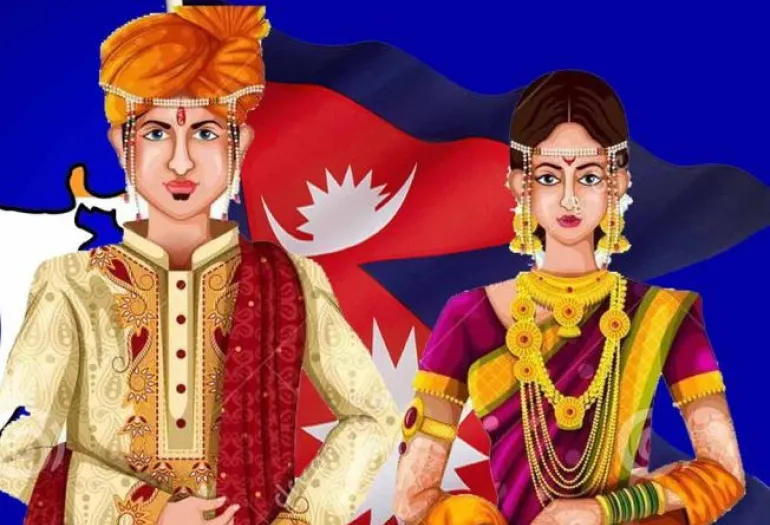MARRIGE LAW
- Home
- MARRIGE LAW

Marriage in Nepal is governed by various legal provisions, including the Muluki Ain (the national legal code) and specific marriage-related acts. It's important to note that laws can be subject to change, and it's advisable to check with updated legal sources or consult legal professionals for the most current information. Here are key points related to marriage law in Nepal:
Legal Age for Marriage: The legal age for marriage in Nepal is 20 years for both males and females. However, if individuals are between 18 and 20 years old, they can marry with the consent of their parents or legal guardians.
Registration of Marriage: The registration of marriages is a legal requirement in Nepal. Couples are required to register their marriage at the concerned district office or municipality. Registration provides legal recognition to the marriage.
Marriage Registration Process: The registration process typically involves submitting a marriage registration application along with relevant documents, such as citizenship certificates, photographs, and a marriage agreement. The application is then processed by the concerned authorities.
Marriage Certificate: Upon successful registration, the couple receives a marriage certificate. The marriage certificate is an essential legal document that provides evidence of the marriage and is often required for various official purposes.
Inter-caste Marriage: Nepal has legal provisions that encourage inter-caste marriages. The Inter-Caste Marriage Promotion Act provides for financial incentives for couples who marry across caste lines.
Polygamy: Polygamy is illegal in Nepal. A person who is already married is not allowed to marry another person while the first marriage is still valid.
Arranged Marriages and Love Marriages: Both arranged marriages and love marriages are common in Nepal. The choice of marriage type is a personal decision, and the legal requirements are the same for both.
Voidable Marriages: Certain conditions may render a marriage voidable, meaning that the marriage is legally valid but can be annulled under specific circumstances. These circumstances may include cases of fraud, coercion, or undisclosed issues affecting the consent of one or both parties.
Divorce: The Muluki Ain provides legal grounds for divorce, including adultery, cruelty, desertion, and other reasons. Divorce proceedings are conducted in family courts, and both parties have the right to present their case.
Waiting Period: In some cases, there may be a waiting period before a divorce is granted to allow for reconciliation efforts. The court may encourage counseling or mediation during this period.
Dissolution of Marriage by Mutual Consent: If both parties agree to end the marriage, they can file for divorce by mutual consent. This process is generally faster and requires joint application and agreement on matters such as alimony and child custody.
It's crucial for individuals seeking information on marriage laws in Nepal to refer to official legal sources, such as the Muluki Ain and related acts, or consult legal professionals for accurate and up-to-date guidance. Marriage laws can be complex, and legal advice can help individuals navigate the legal requirements and implications of marriage in Nepal.